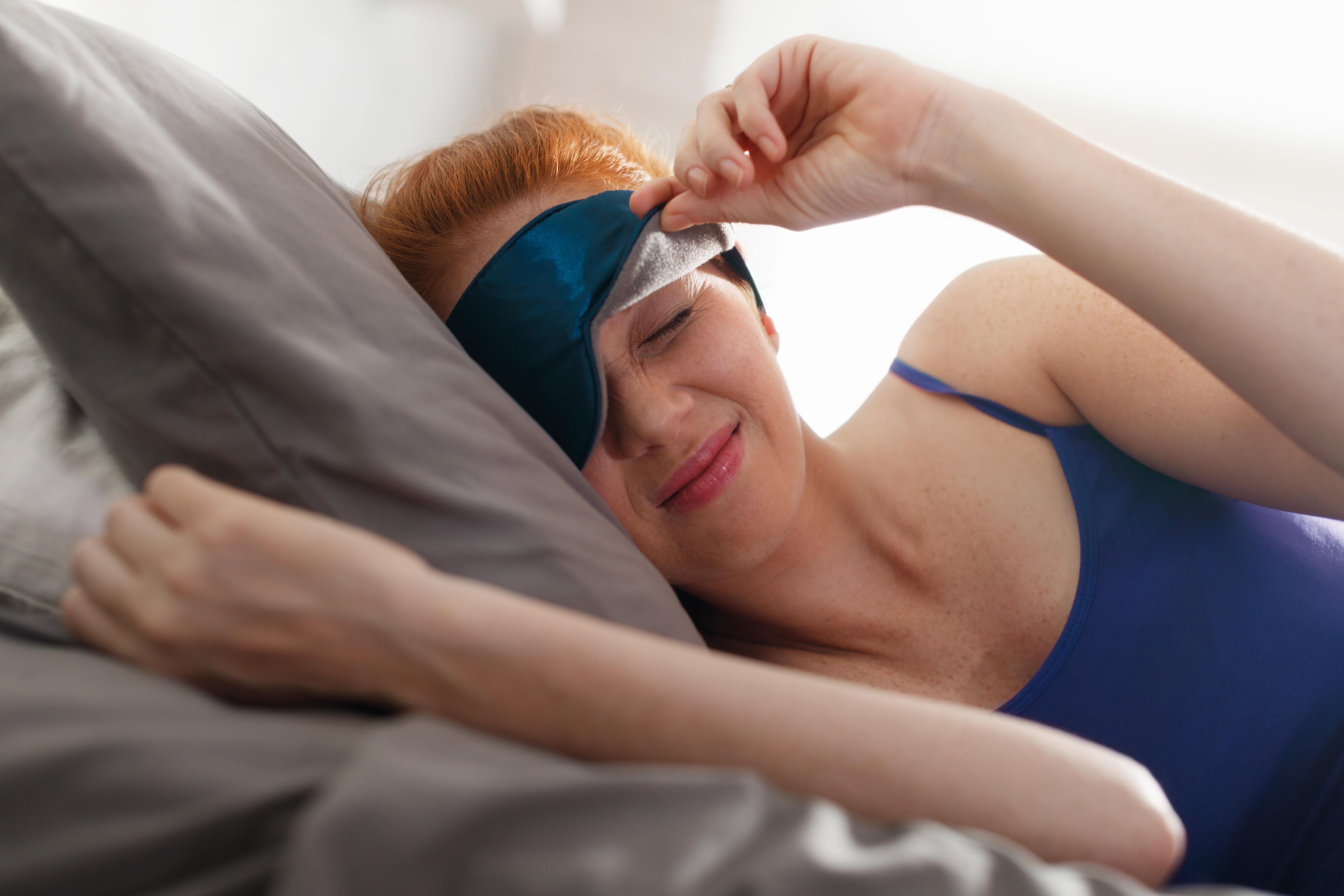What is sleep hygiene and why should you being practising it?
Cut the caffeine and watch your bedroom temperature.

Your support helps us to tell the story
From reproductive rights to climate change to Big Tech, The Independent is on the ground when the story is developing. Whether it's investigating the financials of Elon Musk's pro-Trump PAC or producing our latest documentary, 'The A Word', which shines a light on the American women fighting for reproductive rights, we know how important it is to parse out the facts from the messaging.
At such a critical moment in US history, we need reporters on the ground. Your donation allows us to keep sending journalists to speak to both sides of the story.
The Independent is trusted by Americans across the entire political spectrum. And unlike many other quality news outlets, we choose not to lock Americans out of our reporting and analysis with paywalls. We believe quality journalism should be available to everyone, paid for by those who can afford it.
Your support makes all the difference.The tumultuous events of the past year have wreaked havoc with our sleeping patterns, leaving us wide awake with worries in the early hours of the morning and reaching for the coffee during the day.
According to a recent survey by King’s College London and Ipsos MORI half of people have been sleeping poorly on a regular basis since the pandemic, with two in five saying they’ve slept fewer hours a night on average, compared with before lockdown.
Sleep deprivation doesn’t just feel mentally gruelling when you’ve got a work inbox to contend with, it’s also detrimental to our physical health, putting you at greater risk of developing serious health conditions like heart disease and diabetes.
If you’re currently struggling to switch off at night, you might benefit from practising something called ‘sleep hygiene’ – a system of behaviours that studies have found can deliver longer and better quality shut-eye.
What is sleep hygiene?
Surprisingly, it has nothing to do with washing your bedsheets, nor is it about taking a shower before hitting the lights. Sleep hygiene is basically shorthand for good sleep habits that tee you up for rest.
Paying attention to your sleep hygiene isn’t just about setting up a calm atmosphere for sleeping, but also checking your habits during the day, which can play a key role too.
These include your dietary choices, evening routine, and even your exposure to daylight.
How can I improve my sleep hygiene?
If you’re really looking forward to a good night’s sleep, experts say the key to success is consciously forming positive habits over time.
In fact, research has found that forming good habits is a central part of human health – and sleep hygiene can make all the difference when it comes to feeling our best.
A glass of wine might feel like an easy way to induce that longed-for sleepy feeling, but it won’t do you good in the long-run. “Avoiding alcohol and nicotine is really important if you’re struggling to shut down at night, as both will interfere with your sleep,” says Brendan Street, professional head of emotional wellbeing at Nuffield Health.
If you’re in a cycle of bad sleep, the last thing you probably want to do is go for a run, but getting as little as 30 minutes of aerobic exercise per day can improve your sleep quality. “If you can, I’d suggest doing around an hour’s exercise a day, but make sure to leave a ‘buffer’ period of at least two hours before bed, so you have time to cool down,” advises Street.
Exercising outside has an extra sleep-boosting benefit too, since exposure to natural light helps regulate your circadian rhythm, a natural, internal process involved in the sleep-wake cycle.
Then there’s diet to also consider. “Wakefulness can be caused by hunger, but going to bed too full can also cause wakefulness too,” says Street. “Make sure you consume a balanced diet throughout the day and aim to have a ‘buffer’ period of at least two hours before going to bed after eating a large meal.
“If you’re up late and haven’t eaten for four to five hours, a small snack before bed might prevent you from waking up.” Almonds chamomile tea and tart cherry juice are just a few kitchen cupboard staples that studies have found can promote good sleep.
When it comes to your room itself, you should “make sure it’s dark enough, comfy enough (with the right firmness of mattress), quiet enough with good air quality and the appropriate temperature”, says Street. The best bedroom temperature for sleep is around 18.3 degrees celsius, according to the Sleep Foundation.
Our smartphones, tablets, computers and other electronic gadgets have become such a huge part of our daily lives that it’s often hard to put them down, but Street stresses you should “leave laptops, smartphones, TVs and paperwork out of the bedroom”. As well as being distracting, gadgets produce blue light that can block the sleep hormone melatonin in the brain.
Finally, one of the simplest ways to have a good sleep is to make sure you’re completely relaxed when you go to bed. “Plan for sleep by having a pre-bedtime wind-down,” says Street. “Think of it as your very own ‘bath, story, bed’ ritual. Children sleep well when they have a specific routine associated with bedtime, and so too do adults.”
He suggests trying to develop a wind-down routine at least 60 minutes before you go to bed. “This period should involve ceasing doing stimulating activities, like working late on your laptop, and instead, engaging in more relaxing ones, like having a bath, listening to relaxing music or reading a book,” he notes.
Basically, it’s a great excuse to turn off your emails, put your phone on silent and enjoy some well-deserved downtime.